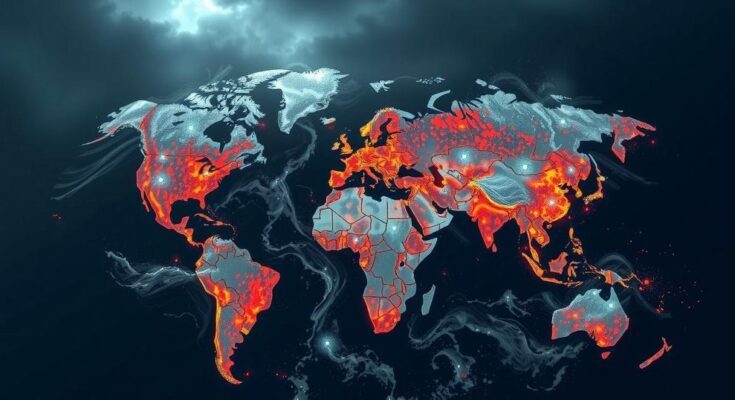Approximately one in eight children globally—around 300 million—have been significantly affected by extreme weather events in 2024, according to Save the Children. With severe storms, droughts, and heatwaves leading to educational disruptions and increased reliance on aid, there is an urgent call to address children’s vulnerabilities at the upcoming COP29 climate summit in Azerbaijan.
Recent analysis by Save the Children indicates that approximately one in eight children worldwide, totaling around 300 million, have been significantly affected by extreme weather events in 2024. These events range from severe storms to prolonged droughts, disrupting their education, forcing them to flee their homes, and increasing reliance on humanitarian aid. The urgency of addressing the impact on children is highlighted ahead of the COP29 climate summit in Baku, Azerbaijan, where calls for prioritizing children’s rights in climate responses are paramount. Among the most notable extreme weather events are Tropical Storm Trami, which affected nearly 19.5 million children in the Philippines by suspending schools; the worst drought in Southern Africa in over a century, impacting 12.2 million children; and flooding in West and Central Africa, which left 10 million children out of school. Additionally, an unprecedented heatwave across South Asia and severe cyclones in Southeast Asia further exacerbated the situation. With climate change intensifying the frequency and severity of extreme weather, children in low- and middle-income countries are disproportionately affected. This reality underscores the necessity for world leaders to acknowledge and include child-focused strategies in their climate discussions at COP29. Save the Children emphasizes the importance of centering children’s voices and rights as integral to future climate finance and adaptation strategies. The experiences of affected children, such as Kyariyam from Nigeria and Zinhle from Zimbabwe, illustrate the devastating personal impact of these climate events, emphasizing the urgent need for global action.
The devastating impacts of climate change, particularly through extreme weather events, have become an increasingly pressing concern worldwide. This year has seen a significant increase in these events, which have severely disrupted the lives of millions of children. With an estimated 2.4 billion children globally, repercussions of climate change present significant humanitarian implications, particularly regarding education, health, and welfare. Organizations like Save the Children advocate for prioritizing children’s needs in climate policy discussions and actions, particularly as leaders gather to address these issues at international summits such as COP29.
In conclusion, the findings by Save the Children regarding the substantial impact of extreme weather on children highlight the critical need for immediate and sustained action. As world leaders prepare for COP29, it is vital that they commit to strategies that prioritize the rights and voices of children, ensuring their protection against the adverse effects of climate change. This call for action is not just a moral imperative but also a necessity for achieving climate justice and securing a future for all children in vulnerable regions.
Original Source: reliefweb.int




